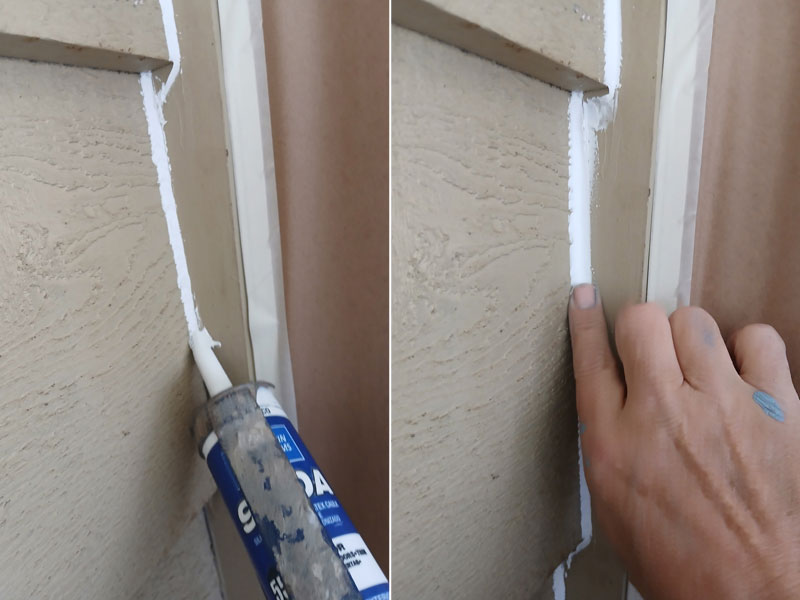Correct application of quality exterior caulk is one of the key steps in preparing your house siding and trim for painting.
What Does Caulk Do?
Caulks are sealants that fill in openings, cracks, spaces etc. to keep water and air from leaking in. Proper caulking prevents water damage and improves interior energy efficiency. Caulking can also prevent insects and rodents from entering your home.
Where Is Caulk Applied?
Caulk should be applied around windows and doors, at the corners of the houses, at meeting edges between lengths of siding, around exterior lights or other fixtures and electrical outlets, and between trims and siding. Caulk should not be used at the bottom of siding boards, fascias or soffits, or on siding nails or window weep holes (the tiny, rectangular holes in the bottom of outer window frames — they’re meant to release water and shouldn’t be blocked).
Loose and Failing Caulk
Before applying new caulk, loose and failing caulk should be removed, using scrapers, utility knives, and/or heat guns. The area should be cleaned of any other surface debris then, in advance of appropriate priming.
Choosing Caulk
Caulks come in many variations; the first consideration is to use a caulk formulated for exterior use and is meant to be painted over. It’s also important consider prevailing weather conditions in your area. Northeast Ohio’s climate is demanding — fluctuating between high and low temperatures, dry periods, rainy periods and high humidity. To stand up to local weather challenges, OPPW uses high-quality siliconized caulk with a 35-year lifespan (when properly applied).
When to Apply Caulk
Caulk is best applied in moderate to warm temperatures to ensure that it fully cures.
Professional Application of Caulk
Like many things, applying caulk is a skill. Application should be smooth and steady and uninterrupted (as much as possible). After initial application caulk should be smoothed for a clean finish.

